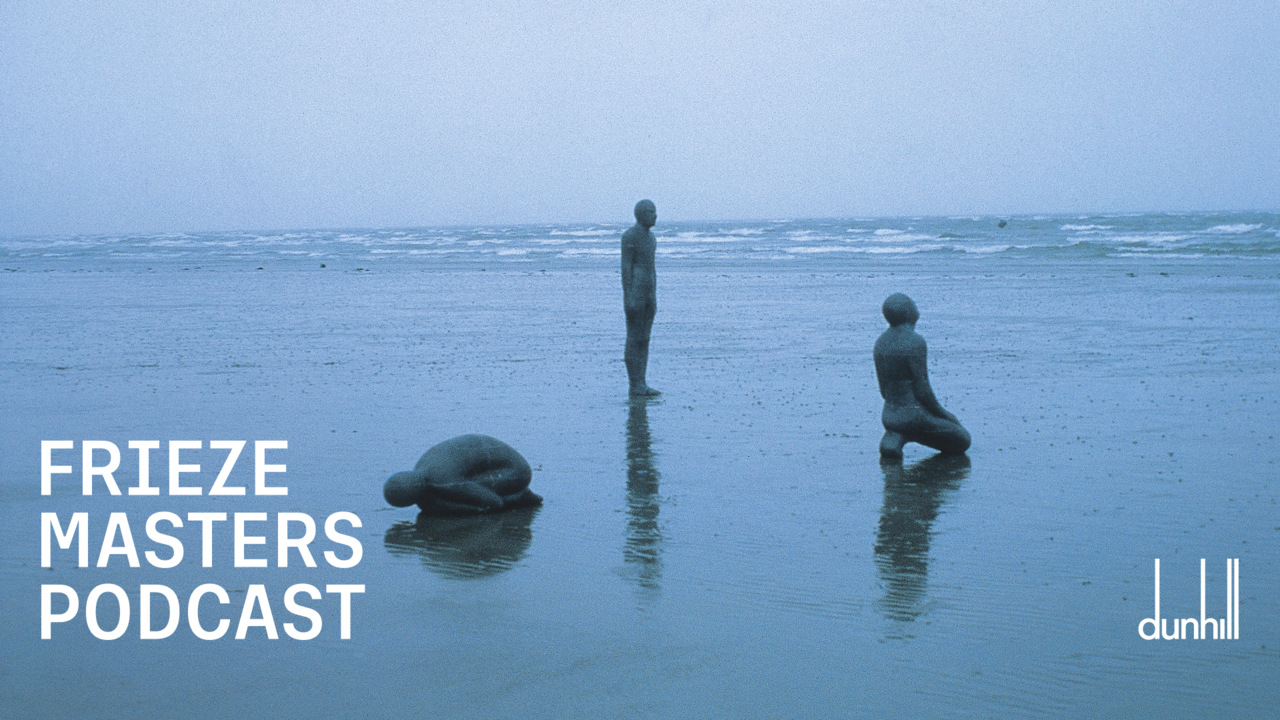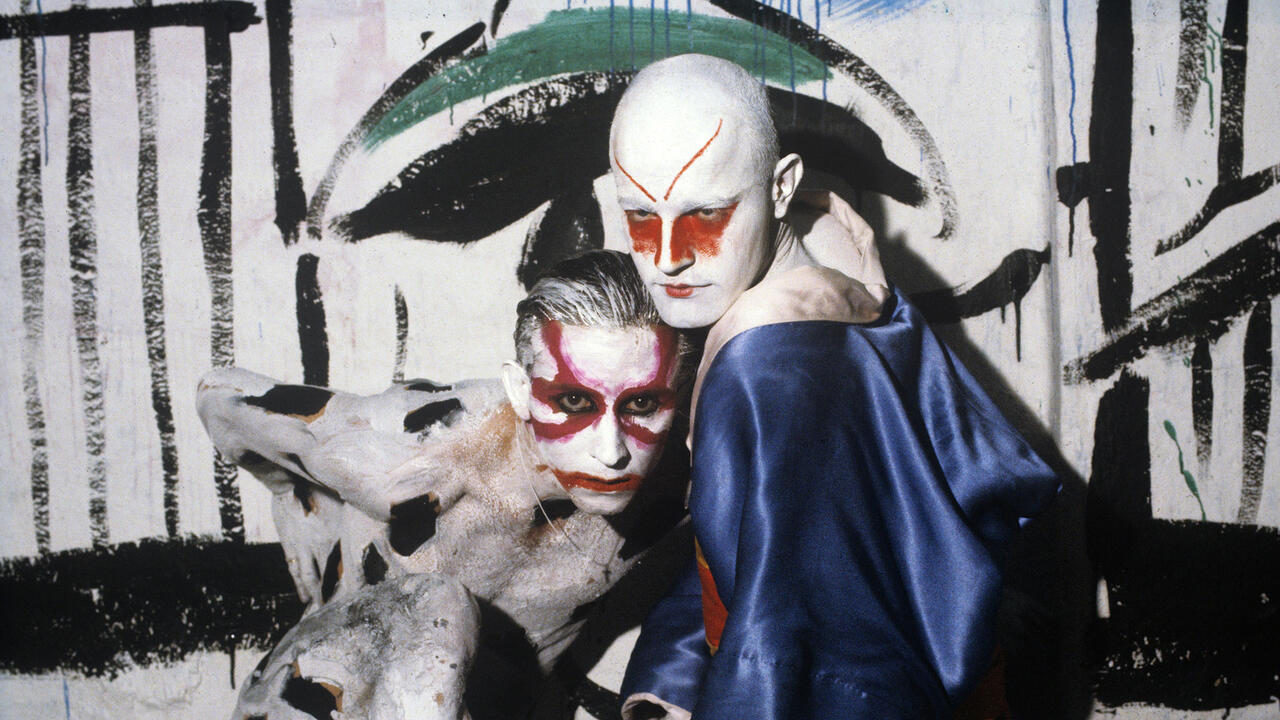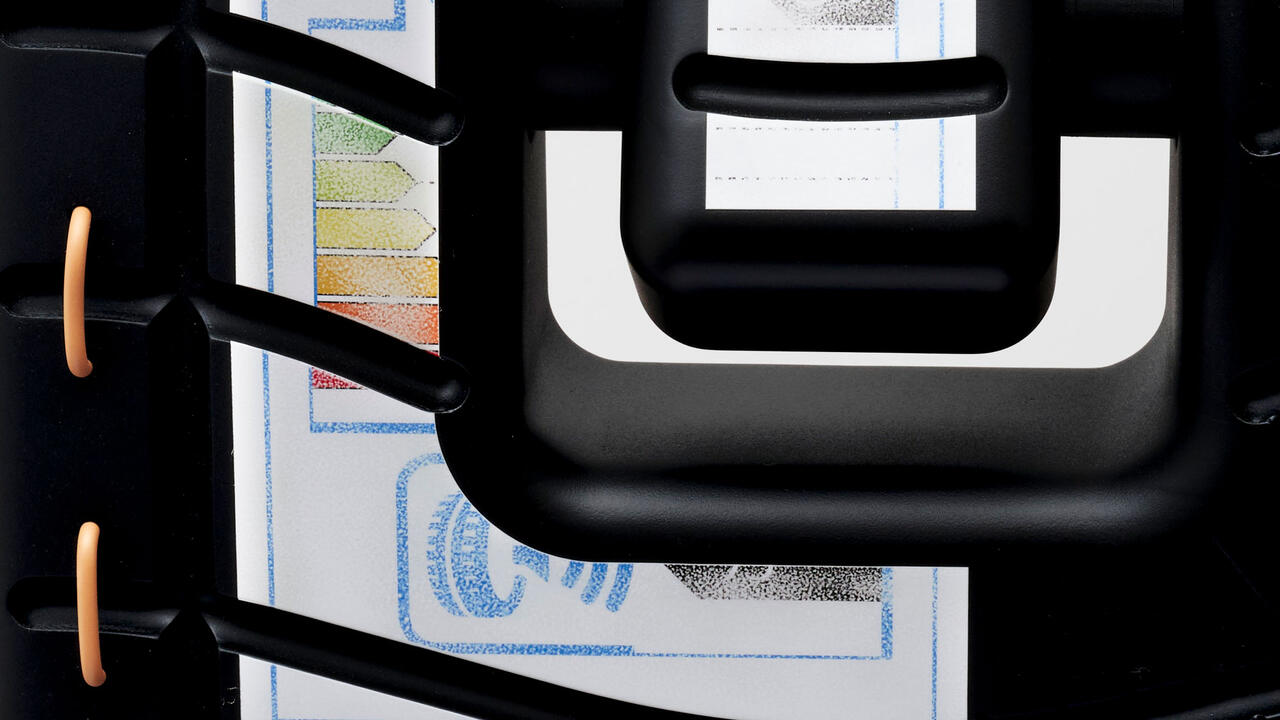Duncan Campbell

Duncan Campbell’s remarkable 39-minute black and white film Arbeit (Work, 2011) holds a mirror to the palsied world economy, in particular the crisis facing the euro. It does this through a biographical account of its ostensible subject, the German economist Hans Tietmeyer, one of the chief technocrats of the monetary union. Delivered briskly by a gentlemanly voice, the film comprises an engrossing and psychologically nuanced monologue with visuals that draw on the idiom of public information films of old: shots of miners, a lone oak tree and a sparse kitchen sketch out Tietmeyer’s Catholic upbringing in 1930s Westphalia. Arbeit is part soliloquy and part illustrated induction speech, and is told almost entirely in stills of archival and stock photographs, documents and banknotes. Onto these, elevator doors sometimes open and close, or spotlights flash, as if agents of treaty deadline opportunity or exchange-rate interrogation. Addressed to ‘Hans’ himself throughout, the voice-over substantiates the character and supports the humanity of the monetary policy represented by this now 80-year-old man.
The euro itself – and moreover the wreckage of subprime mortgages, predatory lending and side bets – only takes centre stage in the final reel. Tietmeyer’s theoretical foundations are speculated upon (shots of books, including Friedrich von Hayek’s 1944 The Road to Serfdom, indicate the direction of his political philosophy), as the forging and tempering of Germany’s initially melancholic postwar recovery are recalled. Tietmeyer’s arrival at the Ministry of Economics in Berlin in the 1960s accompanies the fruits of embracing the ‘common good’ (‘such a shop-worn phrase’ our narrator notes regretfully), and the ‘coming together of means and ends’ (a montage of cities by night, the ‘sensuous delights’ of shop windows, a dinner-jacketed Tietmeyer). Yet stagnation follows and Tietmeyer bravely pens ‘a clinical report on the rotten state of chancellery spending and a trumpet call for budgetary rigour’. A torrent of shocks – the unpegging of the US dollar to gold, strikes and the Iran–Iraq War (1980–88) – is related. This then gives way to a deluge of events, following Tietmeyer’s 1982 ascent to the role of Helmut Kohl’s global economic battle leader, Germany’s IMF representative ‘at summits at the Hall of Mirrors at the Royal Chateau, Versailles, France; Colonial Williamsburg, Virginia; Lancaster House, London; the State Guesthouse, Tokyo...’. Tietmeyer’s time at the Deutsche Bundesbank (with the Berlin Wall having fallen) thereon careers through his steering of the Deutsche Mark’s reunification, further volatility and divergence, before heading inexorably towards the promise offered by European economic and monetary integration.
Where does this leave us now? In its magisterial final act, Campbell’s narrator pins unequivocal blame on the banks’ abandonment of Tietmeyer’s ‘worthy purpose for banking […] prosperity through stability’. Arbeit closes with a bittersweet litany of ‘strange forgetfulness’: ‘Let us forget the low interest rates that cause huge trade imbalances […] Let us forget when the loans made to subprime borrowers dried up […] Forget the fantastic handouts to banks from governments.’
One of the film’s most memorable moments comes as an image of Chancellor Helmut Schmidt, seen perusing a book and smoking, begins to mysteriously smoke itself. The photograph of Schmidt is not so much metaphorically burned on the retina as literally smouldered on a stovetop cooker element: the ring sears through the image, which is eventually lost to sight through the fug. Campbell’s undoubted reference to Hollis Frampton’s (nostalgia) (1971) is telling. In Frampton’s film, a sequence of photographs is similarly burned on a hotplate. The story of each one is narrated, yet the commentary always relates to the following picture (one that we have not yet seen) while we watch the destruction of the image whose explanation has just passed. Arbeit is not only a devastating morality tale, and a rebuke to Euro-scepticism told from the confounding point of view of a banker, but a thesis on amnesia, hindsight, the ontological status of the image and an uncertain future.
















